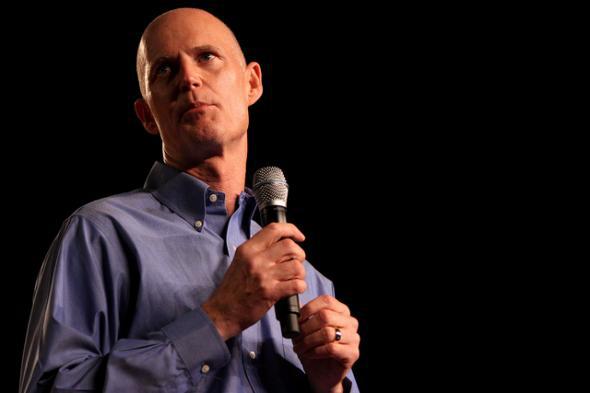As Hurricane Matthew barreled toward Florida earlier this month, Gov. Rick Scott urged 1.5 million residents to evacuate … just as the state’s voter registration period was set to close. Voting rights advocates urged Scott to extend the deadline for residents whose plans to register were thwarted by the hurricane, but the Republican governor refused, insisting that “everybody has had a lot of time to register.” Advocates sued and U.S. District Judge Mark Walker intervened, requiring the state to extend the deadline. “This case pits the fundamental right to vote against administrative convenience,” Walker wrote in his stinging rebuke to Scott.
Given his eagerness to cut off voter registration as soon as possible, Scott will not be happy to learn that registration surged during the extra week ordered by Walker. More than 108,000 residents registered during this period, a rush of new voters that has the potential to tip several elections in the state. Florida is notorious for its painfully close races, and in 2012, President Obama won the state by roughly 74,000 votes out of more than 8 million cast. Hillary Clinton currently holds a narrow lead in Florida, while the Senate race between Sen. Marco Rubio and Rep. Patrick Murphy remains locked in a dead heat. (Let’s dispel with this fiction that Scott didn’t know what he was doing by maintaining the original deadline.)
Of course, as Walker wrote in his ruling, the fight to extend the registration deadline was never a partisan question:
It has been suggested that the issue of extending the voter registration deadline is about politics. Poppycock. This case is about the right of aspiring eligible voters to register and to have their votes counted. Nothing could be more fundamental to our democracy.
It only becomes a partisan question if you decide that more people voting is bad for your party and thus attempt to block voting at all costs, as Republicans have done in recent years to mixed success. It’s still worth noting that Scott’s failure to suppress the votes of those displaced by Hurricane Matthew may well have political consequences. Scott knew that—it’s likely why he tried to prevent these 108,000 new voters from registering. Unfortunately for him, Walker has emerged as perhaps the strongest defender of voting rights today in a judiciary that is finally getting serious about protecting American democracy.
